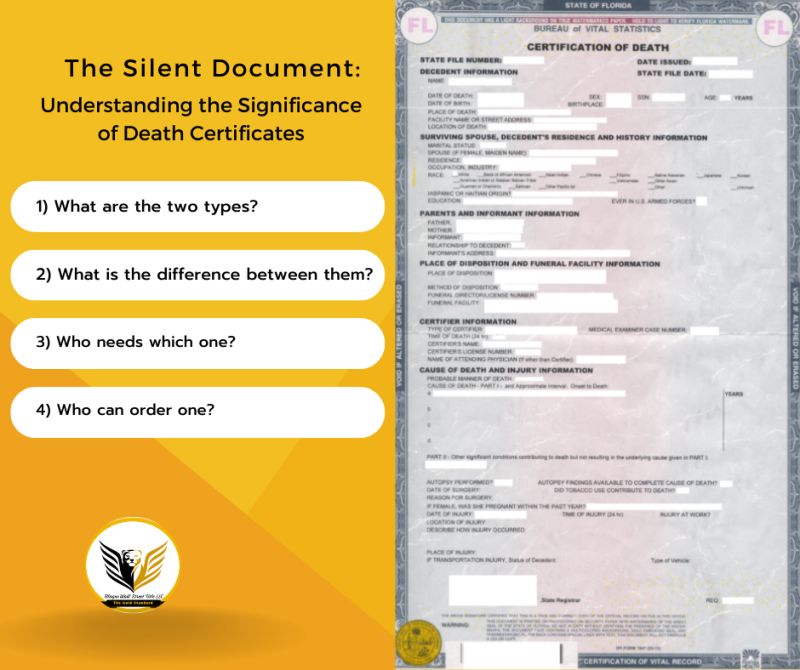
Acquiring a Florida death certificate is an essential task that needs to be completed for various purposes, including:
✔ Transferring titles for real and personal property.
✔ Resolving pension claims and securing life insurance benefits.
✔ Formally initiating probate or administration proceedings for the deceased’s estate.
✔ Closing bank accounts associated with the deceased.
Florida offers two types of death certificates: long forms and short forms. The primary distinction between these certificates is that the long-form death certificate includes the cause of death, whereas the short-form does not.
The introduction of the short-form death certificate was prompted by HIPAA Laws and Privacy Rights, which prohibit certain entities from accepting long-form death certificates.
To determine the specific type of death certificate required, it is best to contact the relevant entity directly. This will enable you to fulfill their requirements appropriately.
Long Form Death Certificate: is accepted by:
➡ Life Insurance Companies
➡ Pensions Companies
➡ Retirement Accounts
Short Form Death Certificate: is accepted by:
✅ Attorneys- most likely will use this form for formally initiating probate or administration proceedings for the deceased’s estate.
✅ Department of Motor Vehicle (DMV)
✅ Investment Firms
✅ County Clerk’s Office- for property titles
Anyone can order a death certificate, but the specific type required depends on the purpose.
Short Form Death Certificate:
Individuals of legal age 18 or above are eligible to request a certified copy of a death record, excluding the cause of death. It is important to note that the first five digits of the decedent’s social security number will be redacted for privacy purposes.
Long Form Death Certificate:
Death records that are less than 50 years old with cause of death and the full social security number. Such records may only be released to the following individuals or parties:
☑ Spouse or parent of the deceased individual
☑ Legal-age child, grandchild, or sibling of the deceased individual
☑ Individuals who provide a will, insurance policy, or other relevant document demonstrating their interest in the estate
☑ Individuals who provide documentation proving that they are acting on behalf of any of the aforementioned individuals
☑ By a Court Order
Helpful tip: It is important to inquire about the return of the original death certificate, as not all entities will mail it back to you automatically and some things are required to keep them for their files. Also, consider ordering multiple death certificates and different types. This ensures you have the necessary documentation for various purposes while managing any potential restrictions or preferences.